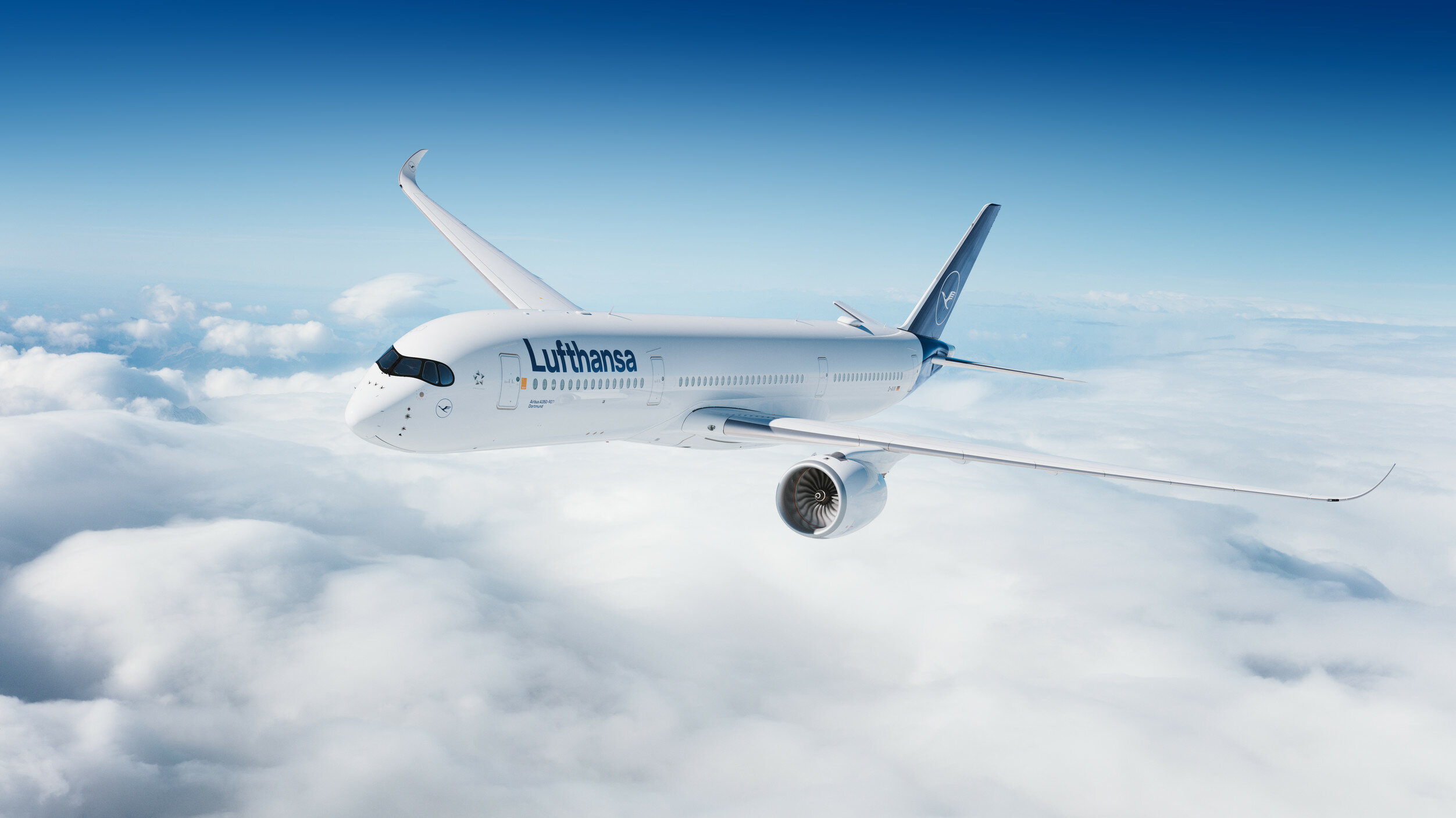In accordance with its mission statement to connect people, cultures and economies in the most sustainable way possible, the Lufthansa Group does everything in its power to reduce the environmental impact of flying and to always use the resources required as efficiently as possible.
The Lufthansa Group has set itself ambitious climate protection goals. The company aims to achieve a neutral CO2 balance by 2050. Already by 2030, the Lufthansa Group wants to halve its net CO2 emissions compared to 2019 through reduction and compensation measures. The reduction goal was validated by the independent Science Based Targets Initiative (SBTi) in August 2022. The Lufthansa Group was the first airline group in Europe with a science-based CO2 reduction target in line with the goals of the 2015 Paris Climate Agreement.
The Lufthansa Group is committed to reducing CO2 emissions from flying as much as possible. Compensation and innovative processes for filtering CO2 from the air and storing it (Direct Air Carbon Capture and Storage (DACCS)) form a complementary instrument in the Lufthansa Group’s sustainability strategy.
To achieve greater sustainability in its air transport activities, the Lufthansa Group focuses in particular on the following levers:
The Lufthansa Group continuously invests in a modern and particularly fuel-efficient fleet. The company has more than 250 new aircraft on its order list, which are to be put into service with Lufthansa Group airlines over the next few years.
The Lufthansa Group is collaborating in numerous projects worldwide to increase the availability of Sustainable Aviation Fuels (SAF), is concluding MoUs with SAF manufacturers and is exploring further options for long-term SAF purchase agreements.
For the Lufthansa Group, continuously increasing fuel efficiency in flight operations is an important lever for more sustainable flying. With the help of technological innovations, smart flight planning and monitoring, improvements in aerodynamics and measures to reduce aircraft weight the Lufthansa Group aims to use every drop of kerosene as efficiently as possible.
The Lufthansa Group is continuously further developing its offers and services for private travelers and corporate customers to offset flight-related CO2 emissions. In February 2023, the Lufthansa Group became the first airline group in the world to offer Green Fares for flights in Europe and to North Africa, its own flight tariffs that include an offsetting of individual flight-related CO2 emissions.
The Lufthansa Group is committed to interlinking modes of transport and is continuously expanding its collaborations with local rail service providers. Today, our intermodal network covers more than 40 destinations in 5 countries with more than 3,000 connections per week.
According to current scientific knowledge, the overall impact of aviation on the climate is not limited to the effect of CO2 emissions. The exact extent of the climatic impact is currently the subject of scientific research. In order to better understand the effects of so-called non-CO2 emissions and to derive measures to reduce the overall climate impact, the Lufthansa Group participates in research projects. In addition, the Lufthansa Group has been actively supporting global climate and weather research for many years.
Energy and Resource Management
Making economically and ecologically efficient use of energy and resources is of decisive importance in all business segments across the Lufthansa Group. In addition to meeting legal requirements, it is important for the Group to identify sustainable potentials for the sparing use of electricity and water, and to develop corresponding solutions. Equally important are measures to reduce and recycle waste materials. Another essential approach on the ground is to take energy-saving and resource-conserving aspects into account when planning, renovating and constructing buildings.
Since 2020, the Lufthansa Group has exclusively been purchasing green electricity in Germany, Austria, Switzerland and Belgium. To this end, Lufthansa has acquired green power certificates, which guarantee the production of green electricity from new power plants, thus contributing to the expansion of renewable energy. As a further measure, the Lufthansa Group aims to reach CO2-neutral mobility on the ground in its home markets by 2030.


